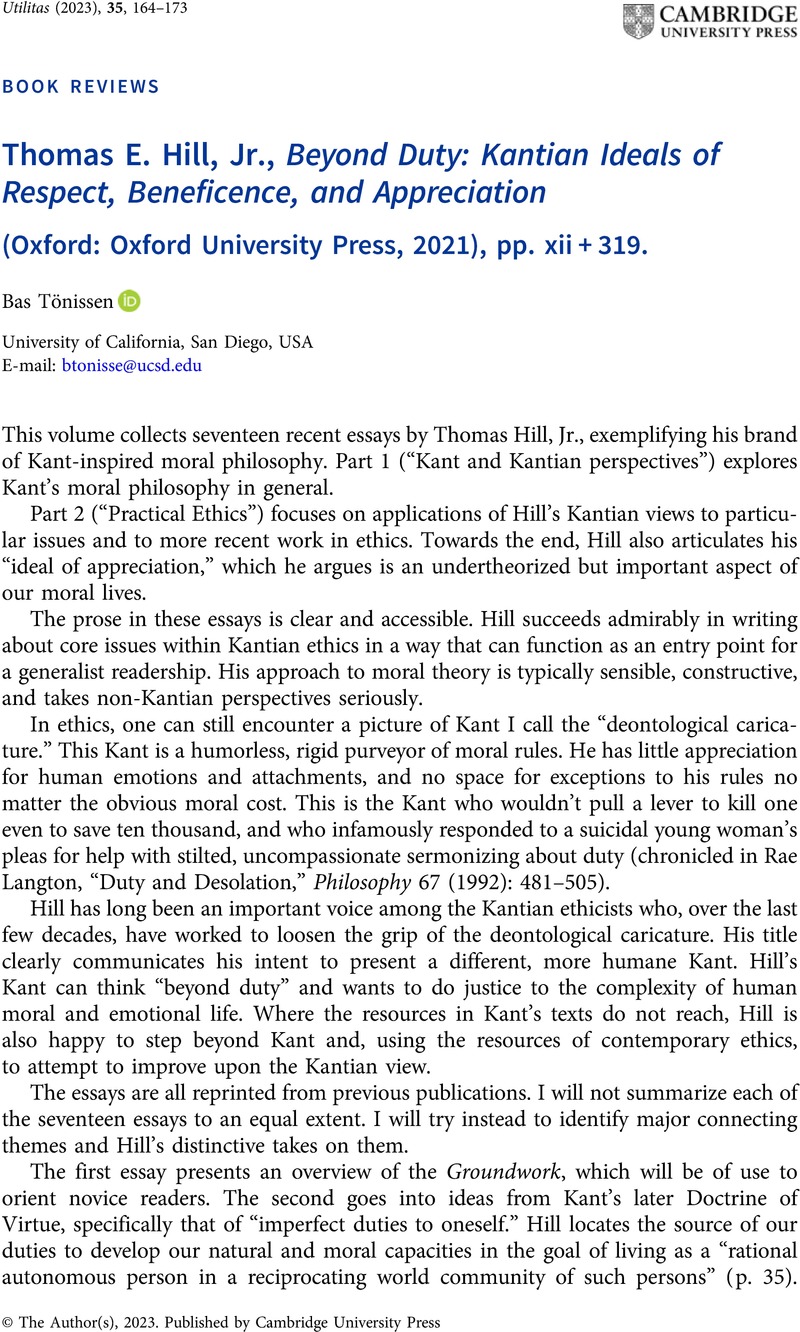No CrossRef data available.
Thomas E. Hill Jr., Beyond Duty: Kantian Ideals of Respect, Beneficence, and Appreciation (Oxford: Oxford University Press, 2021), pp. xii + 319.
Review products
Thomas E. Hill Jr., Beyond Duty: Kantian Ideals of Respect, Beneficence, and Appreciation (Oxford: Oxford University Press, 2021), pp. xii + 319.
Published online by Cambridge University Press: 06 March 2023
Abstract
An abstract is not available for this content so a preview has been provided. Please use the Get access link above for information on how to access this content.

- Type
- Book Review
- Information
- Copyright
- Copyright © The Author(s), 2023. Published by Cambridge University Press



